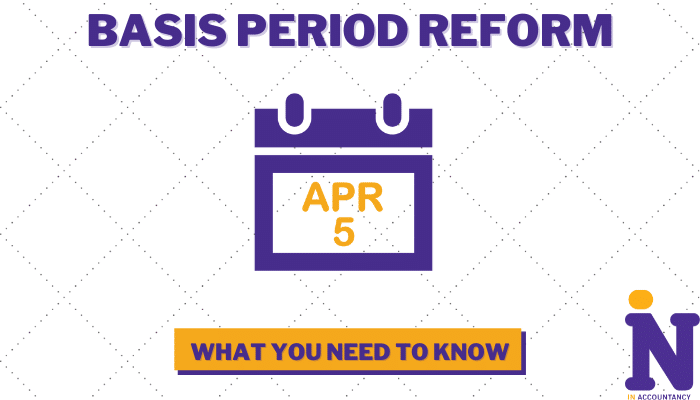The Government’s consultation on Basis Period Reform came to a close at the end of August, and the accountancy world is awaiting the outcome with baited breath…
In a most unusual move, all of the accountancy governing bodies such as the ICAEW, ACCA, CIOT and CIMA came together last week in an open letter to the treasury to urge the government to reconsider the proposed changes.
Who will be impacted by Basis Period Reform?
If you operate as a sole trader or partnership, this is something you should be aware of. If you have such a business which does not have a year end date falling between 31 March and 5 April, read on as this will potentially impact massively on you.
What is the Proposal for Basis Period Reform?
In order to simplify the tax system in advance of the approaching introduction of Making Tax Digital (MTD) for Income Tax Self-Assessment (ITSA) the government is proposing to make the tax period year end for ALL sole trade / unincorporated businesses 5th April.
So What?
Currently if your unincorporated business year end is after 5 April, you will account for the tax in your self-assessment tax return for the following year.
So, for example, if you have a year-end of 30 June 2021, under the current tax regime, you will account for this on your tax return for the year ended 5 April 2022, with any tax liability arising falling due by 31 January 2023.
If the basis period reform proposal goes through this will change, meaning that you would be required to account for any taxable profits in your business in the current year, ie the year to 5 April 2021, with any tax due being payable by 31 January 2022.
So, it’s just a matter of timing?
Well yes, and no.
If this change comes into effect, then there will be a transition in in which such businesses will be accounting for two years’ worth of profits on one year’s tax return.
With the changes proposed to come into effect fully from the year ended 5 April 2024, this means that the 2022-2023 year (which is a lot closer that it sounds!!) would be that year of transition.
Meaning for the above example, on your tax return for the year ended 5 April 2023 you will be accounting for and liable to pay tax on your profits from your year ended 30 June 2022 as well as an apportionment of the profits from your year ended 30 June 2023!
If you haven’t completed your accounts for that period when you come to complete your tax return, you will be required to ‘guesstimate’ your profits and include provisional figures!
Can I spread the payments?
Yes.
At least the government is proposing that if you do have what they deem to be ‘excess profits’ in this transition year, that you can spread these excess payment over 5 years
Is there any other Relief available?
Yes – if you have a year-end other than 31 March to 5 April, it is likely that you will have unused overlap relief available.
As the basis period is changing, there will be an opportunity to offset this relief against any profits arising during the period.
What’s next?
As stated at the outset of this post, the consultation only closed yesterday, so we expect more information to be announced by the end of this month, and will of course update you when we know more.
If you have any questions or concerns in the meantime, relating to this or other matters, please do not hesitate to contact either me, Sarah, or any of the IN Team who will be happy to help.
Further information can be found at:
Basis period reform – consultation – GOV.UK (www.gov.uk)
Income Tax basis period reform (publishing.service.gov.uk)
Income Tax basis period reform 2 (publishing.service.gov.uk)







